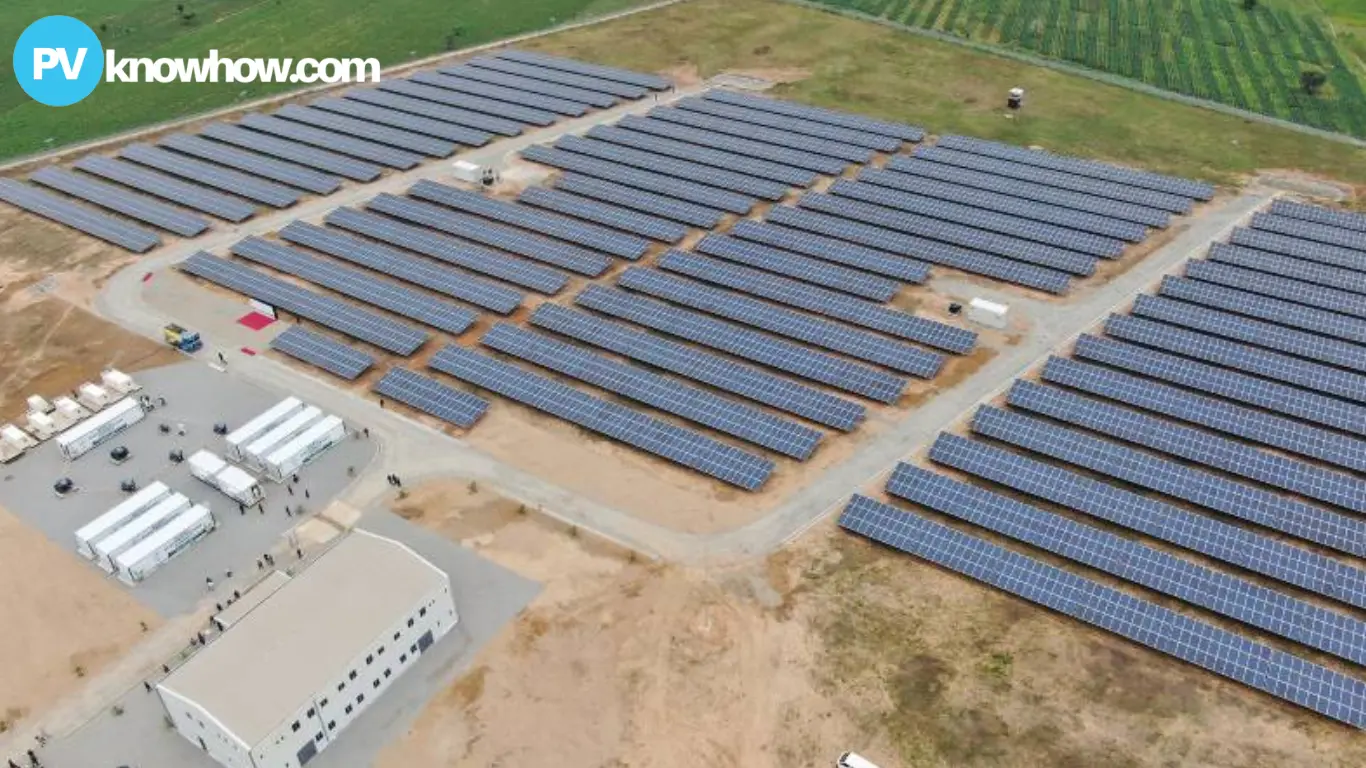The World Bank, FGN, and REA invest $750 million to provide solar energy to eight universities and one teaching hospital under the second phase of the DARES program. Ashish Khanna, the World Bank Practice Manager for West Africa praised the progress of the 12-megawatt University of Maiduguri solar power project.
Largest Solar Project in a Nigerian University
The World Bank, in collaboration with Nigeria's Federal Government and the Rural Electrification Agency (REA) plans to invest $750 million in the second phase of the Energising Education and Access To Renewable Energy Scale-Up (DARES) programs. This initiative aims to install solar energy systems at eight universities nationwide and one teaching hospital.

Largest Solar Project in a Nigerian University. (Image: Collected)
Ashish Khanna, the World Bank Practice Manager for West Africa highlighted the significant progress of the 12-megawatt solar power project at the University of Maiduguri. He mentioned that the World Bank has already invested $350 million in several universities and one teaching hospital as part of this phase.
During a visit to Maiduguri, Khanna inspected the project's development with Abba Abubakar - the Managing Director of the Rural Electrification Agency. They emphasized its importance in meeting the energy needs of the university community and its teaching hospital. Abubakar anticipates the project's completion by September, marking it as the largest of its kind in any Nigerian institution.
The Second Phase
Phase II of the Energising Education Programme will deploy solar hybrid power systems to seven Federal Universities and their associated Teaching Hospitals across Nigeria's six geo-political zones. These institutions include: the University of Calabar & Teaching Hospital, University of Abuja, Nigerian Defence Academy, Michael Okpara University of Agriculture, Umudike, Abia State, Federal University of Agriculture, Abeokuta, Federal University Gashua, Yobe, and University of Maiduguri, Borno State.
The project also involves installing streetlights for enhanced security; establishing a renewable energy workshop and training centre; and improving existing distribution infrastructure. Khanna, together with the Federal Government and REA aims further to enhance Nigeria's educational institutions through sustainable energy solutions.
Furthermore, the Rural Electrification Agency (REA) is advancing gender inclusion by training twenty female STEM students from each participating institution in solar PV system design and construction through the EEP STEM Internship Programme.
350,000 Students and Others to Benefit from Project
Abba Abubakar Aliyu, the Managing Director/CEO of the Rural Electrification Agency emphasised the importance of providing electricity to tertiary institutions. He noted that the ongoing Phase 2 of the project which is funded by the World Bank aims to deliver 12kW of power. This initiative is set to benefit 350,000 students, including over 50,000 academic and non-academic staff across seven universities and one teaching hospital.
Aliyu also acknowledged the pivotal role of the World Bank in supporting the project, mentioning their additional investment of $750 million for the upcoming phase known as the distributed access to renewable energy scale-up (DARES).
Olufemi Akinyelure, Head of the Nigeria Electrification Project stated, "Our objective is to create a sustainable future for Nigeria's educational institutions. EEP Phase II underscores our commitment to utilizing renewable energy solutions to promote academic excellence and gender inclusivity in STEM disciplines.”
State Government Supports Initiative
Acting Governor Hon. Umar Kadafur assured the REA and World Bank of Borno state's commitment to collaborate on renewable energy. He praised the Gas Power Plant in Maiduguri by NNPCL for preventing blackouts after Boko Haram vandalism. Kadafur reaffirmed the state's focus on sustainable energy; emphasizing policies to cut emissions; expand energy access; and drive economic growth through innovative solutions.
The Energising Education Programme which is an initiative of the Federal Government of Nigeria managed by REA aims to install dedicated solar hybrid power systems in 37 Federal Universities and 7 University Teaching Hospitals nationwide. Phase I of the programme has been successfully executed, and Phase II which is funded by the World Bank and nearing completion will expand these benefits to additional institutions.
The $750 million World Bank investment in solar projects for Nigerian universities and a teaching hospital which is being led by the REA and supported by the Federal Government represents a pivotal move towards sustainable energy solutions. This initiative aims to bolster educational opportunities and economic growth while setting new standards for renewable energy adoption in Nigeria's academic sector.
